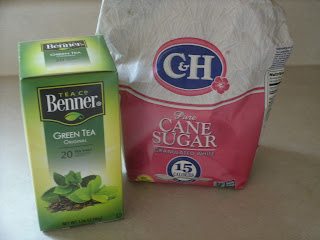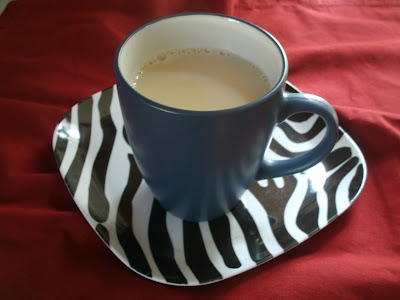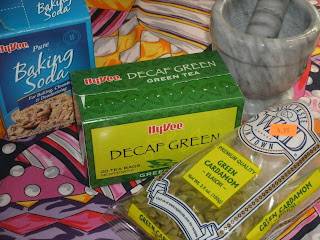Kava tea
When I looked at Oceana countries, I found another tea that is illegal in parts of the world. One article says that it is illegal in Europe and Canada, while it is not illegal in the states. All of the "kava" I've seen are really just a blend of herbs, and I don't think any real kava root is involved. Why? From my research, kava root is described as being a mild narcotic, or having similar effects as alcohol. It has also been linked to liver damage and death. I'm so not pursuing this tea to try. There were 3 countries where I only found references to Kava tea.
Samoa is in the central south Pacific on the western edge of Polynesia. It is sometimes referred to as the cradle of Polynesia, and is believed to be where Polynesian culture developed. They gained their independence from New Zealand in 1962, but is still part of the commonwealth. Samoa is classified as a micronation. Their land consists of 9 islands, 4 of which are inhabited, and 5 that are not. Their total land area is smaller than the state of Rhode Island. They also should not be lumped together with American Samoa. The inhabitants of this country are young with almost 60% of the population being under age 30.
Micronesia is a group of more than 600 islands in the west Pacific. They have 2 types of islands, volcanic and coral. The volcanic islands support many types of plant life, while the coral islands tend to have poorer soil. Settlements tend to be near the coasts on both types of islands, but the coral islands have most of their settlements on the lagoon side of the island. Most of their food is imported, and the traditional diet has been largely displaced by processed foods.
Tonga is in the southwest Pacific, and consists of some 170 islands which are broken up into 3 groups. The islands in the western chain are considered the high islands as volcanic activity has built them up over the years. 4 of these volcanoes are still active. The low eastern islands are coral islands being continually built up by coral, and destroyed by the sea. Islands with reefs are more protected from erosion while those withiut reefs are shrinking in size. Tongans are largely of Polynesian ancestry. They are closely related to the Samoans, but marriage with Europeans has become more common as people leave the country to find work abroad. Agriculture is big business there. The majority of the land is owned by the monarchy who divides the land among the nobles who give parsels of land to peasants to farm. Still, food and beverages account for the largest portion of imports to the country.
In my research on kava, I did find reference to the ban on kava in certain parts of the world did hurt the economy of these small Pacific islands. I can see how that would easily be the case for small islands with few natural resources. Still, I can see why it would be banned for the overall good.
On a totally unrelated subject, if any of my readers are like me as a kid, and always wondered what it would be like to touch the top of a tree taller than you, I recently got the opportunity to do just that. Thanks to the derecho on August 10th, 2 trees blew down next to my house.
I paced off the distance of the maple tree, and it was about 25 feet tall. It broke off at the roots underground and went over. I forgot to take a close up picture of the top of the tree, but the leaves were really neat. the ends of the branches had these small leaflets that seemed to be spiraling around each other as they grew out of the end of the branch. The texture of the new leaves was the same as the larger leaves.
After several days of resting its branches on the ground, my landlord used his truck to pull the tree back up to straight, and tied it to a stake to hold it straight. Actually, he did that to both apple trees that were leaning after the storm. The one that I was looking at the top of was just the more dramatic of the two.








I'm glad the trees didn't demolish your apartment!
ReplyDeleteSame here, but I do miss the shade tree in the morning. I run my air a lot more in the mornings now.
Delete